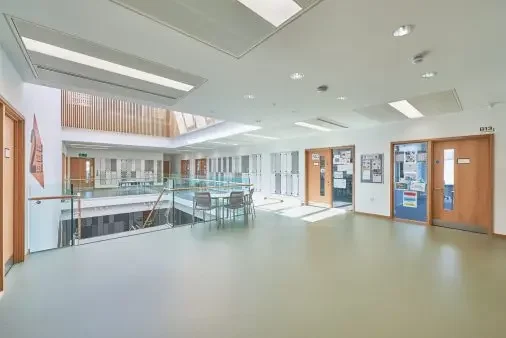The impact of the coronavirus pandemic has been profound and far reaching in society and not least in the education sector. With schools, colleges and universities all locking their gates on the 20th March 2020, buildings have been left unoccupied. Yet with most non-essential construction also paused; it is frustrating for estate managers who could have used this time to undertake longer duration projects without it affecting students’ education. So, what can estate managers be doing during the lockdown?
Rob Gould, Partner at Barker, a leading property consultancy, talks about how education leaders and estate managers can take advantage of the downtime to benefit their estate and stakeholders in the future.
Create a Vision
When we approach Estates Management Strategy, or any other challenge, we quite often look at it as a journey. Where are we? Where do we want to go? How do we get there? The problem is that we often get so bogged down in the first stage that we lose sight of the bigger picture and then fail to take the important decisions that will have the biggest impact.
When you have fewer distractions, it might be an opportune time to revisit your estate vision or start afresh and create a new one. This vision does not need to be a lengthy or an onerous task.
An estate’s vision cannot live in isolation – it must support the vision and strategic plan of the wider organisation. For instance, if growing student numbers by 25% over five years is a strategic goal of the organisation, then this must be reflected in the estate vision.
The vision should also reflect how learning is changing, particularly in light of Covid-19. It may be too early to say but long-term social distancing could impact the use of space i.e. more personal learning areas rather than open plan classrooms.
Audit the Existing Estate
Depending on the extent of the virus lockdown, it may be possible to work with a property consultancy to undertake a complete estate audit including a full inventory of assets, condition survey and statutory compliance review (i.e. fire prevention, health & safety). Undertaking an energy efficiency audit at this time would also be beneficial.
Investing in a tool such as the EO portal helps complex, sizeable and geographically dispersed estates collect, organise and present data about the estate and enable effective decision-making.
Develop a Strategy
Once you have a vision that your stakeholders are aligned with, you then need to create a strategic plan.
Start with some clear objectives. And make them SMART objectives – SMART being specific, measurable, achievable, realistic and, timely (or time-bound). If growth is part of your vision, a SMART objective could be to increase the full-time student capacity by 150 places by the start of the 2023/24 school year. If sustainability is part of your vision, how about reducing carbon emissions by 50% within 18 months?
The strategic plan should include any legislative or planning issues which will need addressing, along with communicating to stakeholders.
In the plan, include any potential blockages or constraints that you may face when bringing the strategy to life, such as changing legislation, environmental objectives, availability of land etc.
Include in the strategy the following aspects:
○ What is your budget? Are there any economic, legislative or other changes which may impact on the budget?
○ What funding streams are available to support estate development and how do you secure this money? Barker is highly experienced at partnering with education clients to bid for funding and has successfully secured over £50m in the last three years.
○ Will the execution of the strategic plan impact upon the quality of learning?
○ If the plan disrupts education, how will this be mitigated?
○ Energy bills are one of the highest costs to schools and colleges after the wage bill. Just small changes (like installing PV panels and LED light bulbs) can make huge energy cost savings.
○ The Barker sustainability team can guide you on the energy efficiency journey.
○ The Covid-19 virus is likely to be a feature of life for years to come and it will impact on how students, staff, parents and other stakeholders interact. It is likely to affect public areas, common areas and possibly even teaching spaces. Supermarkets are already changing their estate plans as a result of the virus, and schools will have to make changes too.
Develop an Asset Management Plan (AMP)
Now is the right time to reassess your Asset Management Plan, as your AMP deals with the actions required in the short to medium term. During this virus outbreak, you need to be considering the actions needed to protect staff, students and visitors. Think about what urgent work is required to maximise protection (i.e. installation of sanitiser stations, protective screens, queue management systems).
Using this time to think and plan is a vital activity, but so is the need to be flexible and adaptable. Recent events have shown us that change can be thrust upon us very quickly and we need to be resilient and quick to embrace (or lead) change.
